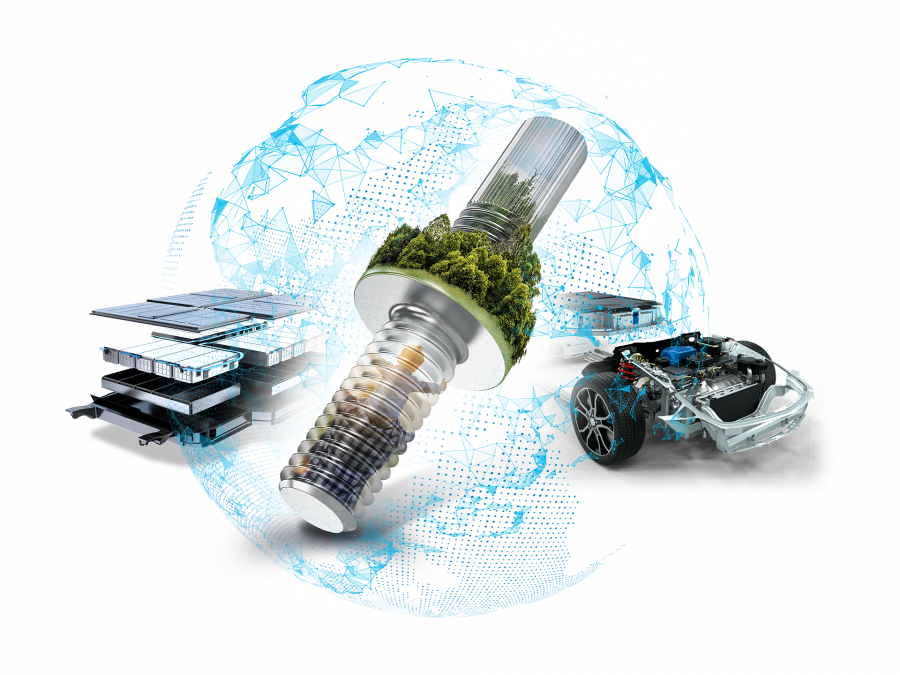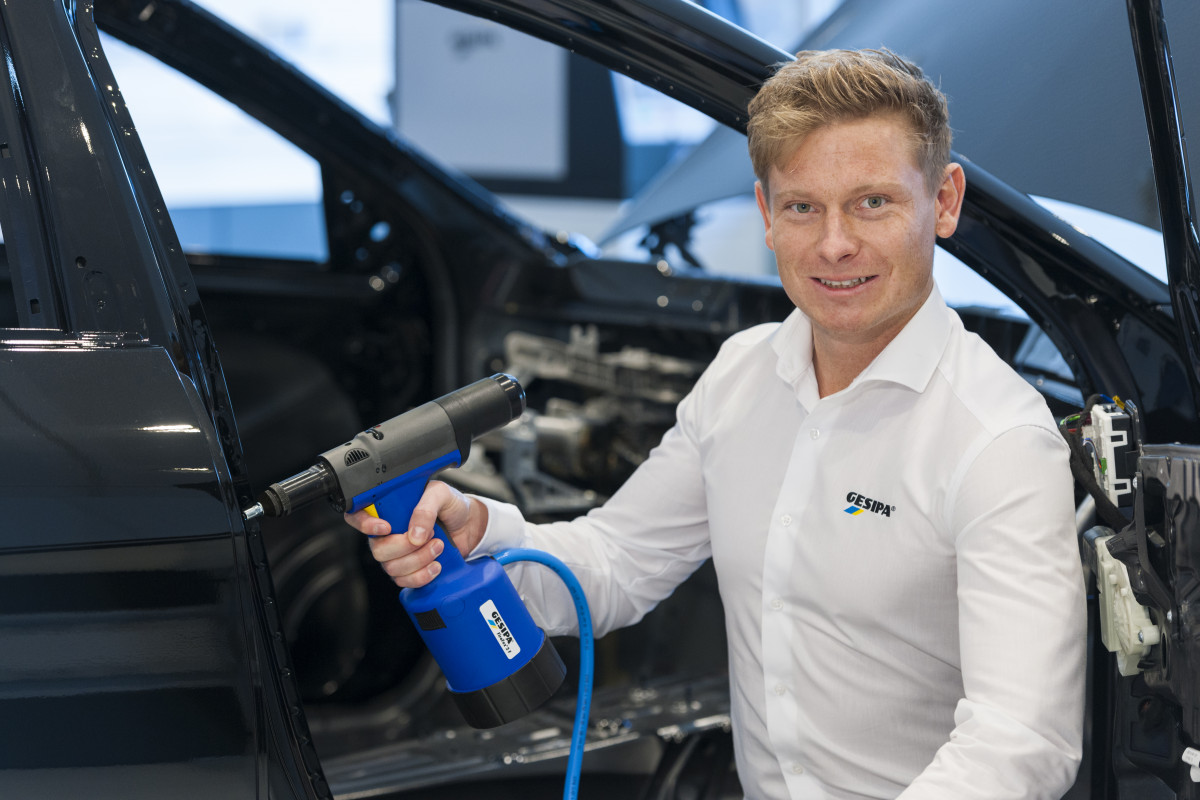Fewer fasteners mean more innovative solutions

Weight savings, solutions in stamping instead of machining, new approaches to sustainability... two expert firms highlight the main challenges in the world of automotive fastening.
Raquel Alonso, Area Sales Manager Iberia at Arnold Group, recalls that "the automotive industry has always had very high quality requirements compared to other sectors, and in the last decade they have increased due to the variety of vehicle elements and the innovations introduced. In terms of costs, the trend is still towards maximum reduction and these are analysed in detail, including, of course, the fasteners. However, where we see more changes in the last five years is in sustainability, because as suppliers we are being required to follow certain standards, and we have to show our carbon footprint reduction plans to participate in projects with the major OEMs”.
Alonso points out that "a car with a combustion engine has up to 3,000 fasteners, whereas electric vehicles have around 25 percent fewer. However, there has been an enormous increase in the quality requirements for fasteners in an electric vehicle. We in the industry have to completely reorient ourselves and meet new challenges. In fasteners, for example, sealing is very important (there must never be a leak in the battery pack); access points for maintenance must also be designed, and there are key fastening elements for electrical conductivity. Different materials, processes and surfaces are used different materials, processes and surfaces are used than before. The players in this field, from start-ups to OEMs, are exchanging ideas, so inter-company collaborations are often sought for the development of new solutions".
The Arnold Group representative comments: "In the past, steel was used for the majority of fasteners. However, the current trend in vehicle body designs, where weight reduction solutions are being sought and aluminium and high-strength steel are increasingly used, also requires a change in fastening solutions, which are also being designed in aluminium and copper. Green steel' is also one of the most important development drivers".
In terms of the environmental response, Alonso emphasises that "for more than 125 years of Arnold's history, we have put sustainability at the centre of all our business activities, also to optimise production processes. Our motto BlueFastening Systems means that the social, ecological and economic actions of our company, the production processes and the work of our employees must be designed in such a way that they contribute to securing our long-term future. A particular concern here is the continuous development of cold forming technology to enable us to manufacture by stamping many components that were previously machined. This makes manufacturing much more resource- and climate-friendly. We are making a lot of progress in this field”.
As for current projects, Raquel Alonso cites "the development of some new products by our R&D department, citing some examples such as the FlowFromPlus (new self-drilling and self-tapping screw), or the welded solutions Flexweld (very light element for resistance welding) and recently Flowweld (very light element for friction welding), which allow the assembly of aluminium and Usibor 2000 (or steel with an Rm of 2000MPa). Flowweld (very light element for friction stir welding), which allow the assembly of aluminium and Usibor 2000 (or steel with a Rm of 2000MPa). Another significant project is our ACO2-Save: we create the individual footprint for each product along the entire value chain. We offer customers a wide range of options to save CO2. The design starts with a FEM ("finite element") simulation that can be linked to a CO2 calculator, and we obtain in advance the footprint that will be generated by the production of the component. The different solutions can be compared with each other. For example, we have converted a special aluminium screw previously machined for a battery application into a cold-stamped part: previously, a turned part was used, which had an initial volume of 25,630 mm³ and a weight of 69.2 g per part. Thanks to ACO2, it was possible to switch to a stamped part with a volume of only 9,135 mm³ and a weight of 24.82 g per part. In addition to the weight, the CO2 footprint was reduced by 45%”.
Redesigning solutions

Christian Meissner, CEO of Gesipa, also points out that "the automotive industry expects high quality and on-time delivery of its products. Gesipa seeks to add value to fasteners and processes, either by redesigning current fastening solutions, solving current quality issues or providing automation and process control to verify the fastening solution. Sustainability is becoming increasingly important in the automotive industry as this issue is addressed throughout the entire supply chain".
Meissner believes that "with the shift to electric and/or electrified models, we see new opportunities opening up for fasteners, while maintaining traditional sheet metal and body applications. Gesipa is constantly looking to the future and the materials used by our customers. In the automotive manufacturing industry's relentless pursuit of lightweight and efficient vehicles, Gesipa's SoftGrip rivet nuts stand out as a revolutionary solution for fastening carbon fibre reinforced plastics (CFRP) and other composite materials. Their precision, strength, corrosion resistance and compatibility with a wide range of applications make them an essential component in the pursuit of high-quality lightweight vehicles".
As the automotive industry continues to evolve, innovative fastening solutions such as SoftGrip are key drivers of progress, enabling manufacturers to realise the full potential of lightweight materials while maintaining uncompromising standards of quality and safety. Space-saving fasteners are also available to optimise fastening solutions where space is an issue, which also contributes to sustainability by using less material and weight".
Christian Meissner concludes, "Gesipa is continuously working on process improvements to increase efficiency, but also to improve sustainability within our manufacturing plants. We also apply a local-to-local strategy with production sites all over the world to serve our customers. The projects we are currently working on with our customers are confidential for the time being".
Lea este artículo en castellano
Article published in AutoRevista 2.386

AutoRevista analiza el informe ‘Movilidad Eléctrica en España. Situación actual, objetivos y retos a abordar’ de May López, profesora de OBS Business School, que concluye que la movilidad eléctrica se posiciona como pieza fundamental en las estrategias de sostenibilidad.
Una información de Irene Díaz.

La infraestructura de recarga de acceso público en España sigue desarrollándose a buen ritmo. Según el Barómetro de Electromovilidad de ANFAC, durante el segundo trimestre de 2025, la red de recarga ha aumentado un 3%, con 1.534 nuevos puntos instalados.

ACICAE-Cluster de Automoción del País Vasco ha entregado los XIX Premios Automoción-ACICAE 2024 a personas organizaciones y proyectos que han destacado por su labor en favor de la competitividad del sector de automoción.

Toyota España ha vuelto a destacar su apuesta por el hidrógeno como energía sostenible, limpia y respetuosa con el medio ambiente participando en la duodécima edición del Green Gas Mobility Summit, celebrada los días 25 y 26 de junio en La Nave (Madrid).

Para celebrar su 70 aniversario, Alpine ha creado una película de tres minutos que repasa los momentos más destacados de su historia y los que están por venir. El vídeo pone música a la visión del fundador de Alpine, Jean Rédélé, y al lema de la marca: ‘Convertir la ligereza en una fortaleza’.
